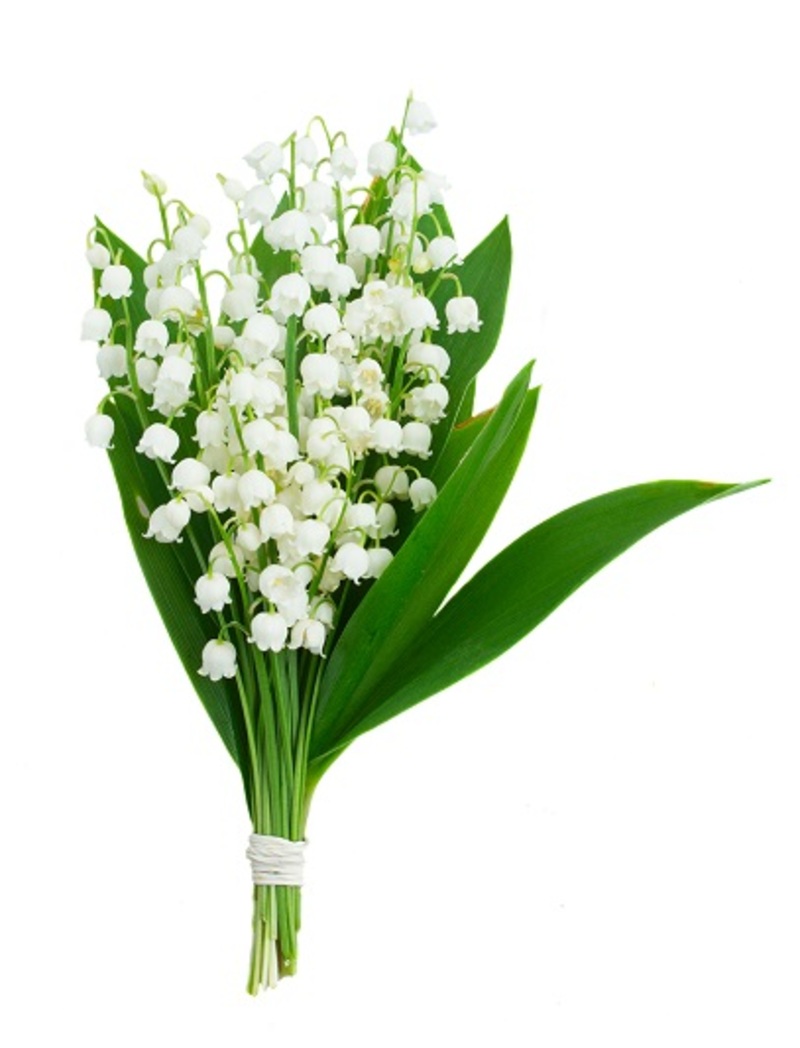The Colorful World of Peony Flowers and Their Meanings
Posted on 14/08/2025
The Colorful World of Peony Flowers and Their Meanings
The peony flower is a marvel of nature that has enchanted gardeners, artists, and romantics for centuries. Revered for their lush petals, delicate fragrances, and a spectrum of enchanting colors, peonies capture the very essence of botanical beauty. However, beyond their visual appeal, peony flowers are imbued with rich cultural symbolism and meanings that have evolved across civilizations and time. In this comprehensive article, we delve into the vibrant hues, varieties, symbolic meanings, and fascinating history of peonies, offering an immersive journey into the colorful world of these extraordinary blooms.
Introduction to Peony Flowers
Peonies belong to the genus Paeonia and are celebrated for their extravagant, often globe-sized blossoms and subtle perfume. With roots tracing back thousands of years, peonies are native to Asia, Europe, and parts of Western North America. Today, these flowers are beloved worldwide, gracing gardens, bouquets, and ceremonial occasions with their opulent presence.
The popularity of peony flowers is not solely a reflection of their beauty--each peony color and variety tells its own unique story and carries profound cultural and emotional significance.

Varieties and Types of Peony Flowers
The colorful world of peonies encompasses a fascinating diversity of species, shapes, and hues. Peonies generally fall into three main categories, each with its own distinct characteristics:
- Herbaceous peonies: These are the classic garden peonies. Their stems die back to the ground in winter and re-emerge anew in the spring. An example includes the famous 'Sarah Bernhardt' with its fragrant, pink blooms.
- Tree peonies: Unlike herbaceous types, tree peonies have woody stems that do not die back. They produce enormous blossoms and can live for decades if well cared for.
- Intersectional (Itoh) peonies: A hybrid between the herbaceous and tree varieties, Intersectional peonies offer the best traits of both, featuring massive flowers and strong stems.
Each variety brings additional layers of color and symbolism to the already rich tapestry of peony meanings.
The Spectacular Colors of Peony Flowers
One of the most enchanting aspects of peony flowers is their breathtaking array of colors. From delicate pastels to bold, saturated tones, peonies offer a rainbow of possibilities for gardens and floral arrangements. Let's explore the most popular peony colors and their traditional meanings.
Pink Peonies: Love and Romance
Perhaps the most iconic shade, pink peonies are cherished for their association with romance, affection, and prosperity. In both Eastern and Western traditions, pink peonies are often featured in bridal bouquets as a symbol of happy marriage and enduring love.
- Symbolism: Romance, grace, compassion, and beauty
- Occasions: Weddings, anniversaries, Valentine's Day
Fun Fact: In China, pink peonies are considered the "King of Flowers" and are honored as emblems of good fortune and feminine beauty.
White Peonies: Purity and Remembrance
White peonies evoke feelings of purity, innocence, and fresh beginnings. Their pristine bloom makes them perfect for wedding celebrations and often, memorial arrangements.
- Symbolism: Purity, humility, new beginnings, remembrance
- Occasions: Weddings, memorials, graduations
In some cultures, white peonies can also signify apology and a sincere wish for forgiveness, making them a meaningful gesture of reconciliation.
Red Peonies: Wealth and Honor
The striking coloring of red peonies commands attention and carries a profound meaning in many cultures, particularly in Asia. Red peonies are symbols of wealth, honor, respect, and prosperity, often gracing homes and temples during festivals and important celebrations.
- Symbolism: Prosperity, respect, honor, passion
- Occasions: Lunar New Year, birthdays, celebrations of achievement
In Chinese history, red peonies were reserved for royalty, reflecting their association with status and power.
Yellow Peonies: Joy and Optimism
Yellow peonies present a cheerful and sunny disposition, symbolizing happiness, optimism, and new possibilities. These rare but radiant blooms brighten any arrangement, uplifting the spirits of all who encounter them.
- Symbolism: Joy, positive energy, opportunities, happiness
- Occasions: Birthday celebrations, housewarmings, thank-you gifts
Gifting a bouquet of yellow peonies is seen as a wish for prosperity and joyful ventures ahead.
Purple and Lavender Peonies: Nobility and Mystery
The purple peony is less common but deeply symbolic. Traditionally connected to royalty, enchantment, and elegance, purple or lavender peonies are well suited for sophisticated and formal events.
- Symbolism: Nobility, admiration, charm, mystery
- Occasions: Graduations, special recognitions, milestone birthdays
A bouquet of purple peonies makes an impressive statement of respect and admiration for the recipient.
Other Shades: Coral, Peach, and Multicolor Peonies
Modern cultivars offer a breathtaking array of colors such as coral, peach, and multicolored peonies. These unique blooms symbolize everything from warmth and friendship to playfulness and creativity. With their dazzling hues, they add dimension and depth to garden beds and bouquets alike.
Peony Flower Meanings Through History and Cultures
The meanings of peony flowers have been shaped by centuries of folklore, mythology, and tradition. Let's examine how various cultures have celebrated these blooms and what they represent in different parts of the world.
Peonies in Chinese Culture
In China, peonies are known as "mudan" or ?? and esteemed as the "King of Flowers." They symbolize riches, honor, and feminine beauty, appearing in art, poetry, and festival decorations for over 1,500 years. Peonies are the traditional flower of China and are associated with prosperity and nobility.
- Used in: Imperial gardens, wedding ceremonies, New Year decorations
- Legends: Ancient tales describe the peony as a flower of love and virtue, sometimes believed to bring luck and wealth to those who cultivate them.
Peonies in Japanese Culture
In Japan, peonies (???, botan) are considered a symbol of good fortune, bravery, and honor. They often appear in traditional tattoo art, where they represent the balance between boldness and gentleness.
- Appearances: Kimono patterns, paintings, family crests (kamon)
- Meaning: Masculinity, honor, bravery, and a zest for life
Peonies in European Symbolism
Peonies were popularized in medieval Europe for both ornamental beauty and medicinal qualities. Across European history, peony flowers have symbolized romance, prosperity, and healing, often referenced in folklore as a "fairy flower."
- English tradition: Bringing peonies into your garden was long believed to invite good luck and protect against evil spirits.
- French tradition: Peonies remain a classic choice in French country gardens, associated with elegance and maternal care.
Peony Flower Symbolism in Literature and Art
Peonies have inspired countless poets, writers, and artists through the ages. Their lavish blossoms and symbolic depth provide rich subject matter for creative expression. For instance, Chinese watercolor paintings frequently use the peony to suggest themes of beauty and opulence, while European painters during the Victorian era were captivated by the flower's romantic associations.
In literature, peonies often symbolize the fleeting nature of beauty, the hope of renewal, or the deep bonds of love and friendship.
Care and Cultivation of Peony Flowers
Gardening enthusiasts delight in cultivating peonies not only for their stunning visuals but also for the positive meaning they bring to any landscape. To grow vivid peony blooms and harness the full beauty of your plants, follow these key tips:
- Choose the right variety: Consider your climate, available space, and desired flower form when selecting between herbaceous, tree, or Intersectional peonies.
- Plant at the correct depth: For most peonies, ensure the eyes (buds) are no more than 2 inches below the soil surface--too deep and the plant may not flower.
- Provide sunlight: Peonies flourish in full sun, requiring at least 6 hours of sunlight daily.
- Ensure proper drainage: Wet or poorly draining soil can cause root rot. Amend heavy clay soils with compost or sand.
- Patience: Peonies take a few years to establish and blossom prolifically but reward your care with decades--even generations--of vibrant flowers.
With the right cultivation, your garden can become a living celebration of the myriad colors and meanings of peony flowers.
Peonies in Modern Life: Weddings, Aromatherapy, and Gifts
The charm of peony flowers extends far beyond gardens. Today, they hold a cherished place in global flower markets for weddings, luxury arrangements, and meaningful gifts.
Peonies in Weddings
Thanks to their romantic symbolism, peonies are among the most sought-after flowers for bridal bouquets and wedding decor. Their lush petals and timeless beauty perfectly embody ideals of love, prosperity, and happiness--making them an exquisite choice for newlyweds.
Aromatherapy and Skincare
Peonies boast a captivating fragrance prized in both traditional and modern perfumery. Peony extracts are also used in premium skincare products, believed to offer calming, hydrating, and rejuvenating effects for the skin.
Gifting Peonies: The Perfect Gesture
Due to their multitude of colors and meanings, peonies can be tailored to suit any occasion or sentiment:
- Pink peonies: Express admiration or budding romance
- White peonies: Convey sincere apologies or wishes for new beginnings
- Red peonies: Celebrate major achievements or festive events
- Yellow peonies: Bring cheer and encouragement to a new venture

The Enduring Appeal: Why Peony Flowers Captivate Us
Whether in the wild, cultivated in gardens, or featured in art and culture, peony flowers continue to enchant people across the globe. Their vivid colors, sumptuous forms, and profound meanings make them a timeless favorite, a symbol of all that is transient and beautiful in life.
As you explore the colorful world of peonies, remember that each bloom tells a story--one of love, honor, luck, or new beginnings. With every petal, the peony reminds us of nature's artistry and the deep, cross-cultural meanings that flowers can embody.
Conclusion: Celebrating the Rich Meaning of Peony Flowers
The journey through the colorful world of peony flowers and their meanings reveals a captivating interplay of botany, culture, and personal expression. Whether you are drawn by their radiant colors, historical allure, or heartfelt symbolism, peonies offer endless inspiration and joy.
- Celebrate with peonies for any milestone or expression of emotion
- Grow peonies to invite beauty and meaning into your garden
- Gift peony bouquets as a messenger of luck, love, friendship, and prosperity
May your appreciation for these magnificent flowers bloom as vibrantly as the petals themselves!
Discover more about the world of flowers and their meanings by exploring our blog's floral guides.
Latest Posts
Expert Advice for Making Poinsettias Enduring
Flower Longevity: Top 3 Easy Preservation Tips
The Relationship Between Your Birth Flower and Your Identity







